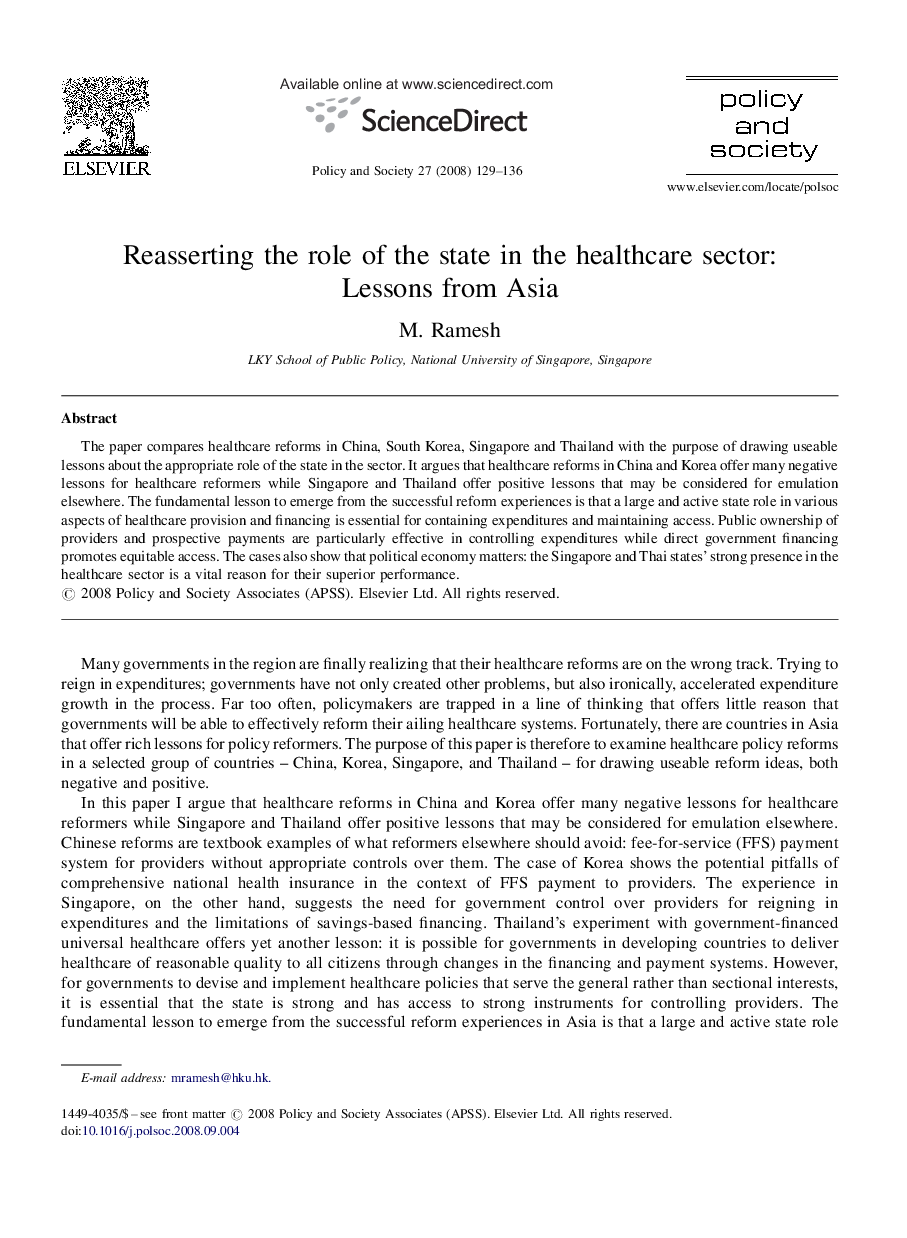| Article ID | Journal | Published Year | Pages | File Type |
|---|---|---|---|---|
| 1061636 | Policy and Society | 2008 | 8 Pages |
The paper compares healthcare reforms in China, South Korea, Singapore and Thailand with the purpose of drawing useable lessons about the appropriate role of the state in the sector. It argues that healthcare reforms in China and Korea offer many negative lessons for healthcare reformers while Singapore and Thailand offer positive lessons that may be considered for emulation elsewhere. The fundamental lesson to emerge from the successful reform experiences is that a large and active state role in various aspects of healthcare provision and financing is essential for containing expenditures and maintaining access. Public ownership of providers and prospective payments are particularly effective in controlling expenditures while direct government financing promotes equitable access. The cases also show that political economy matters: the Singapore and Thai states’ strong presence in the healthcare sector is a vital reason for their superior performance.
